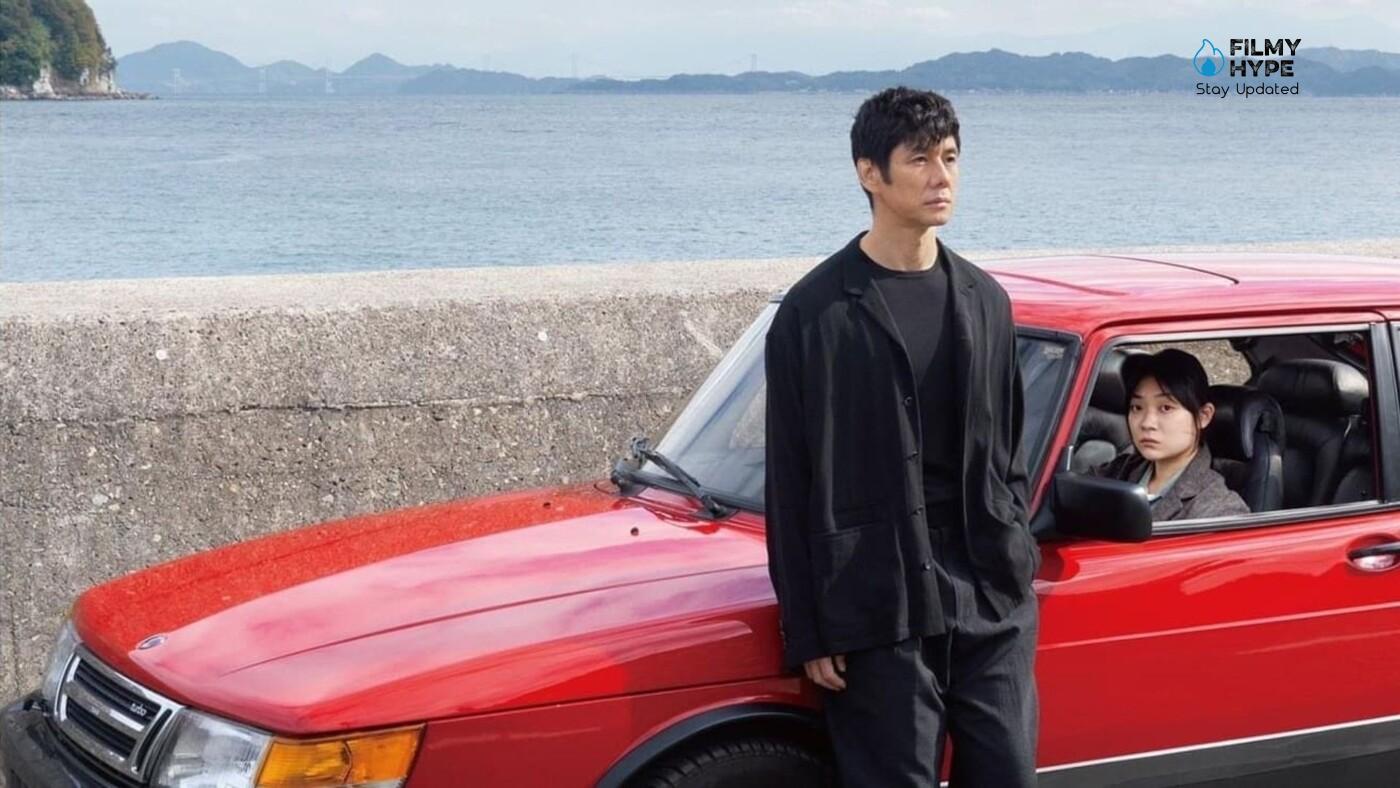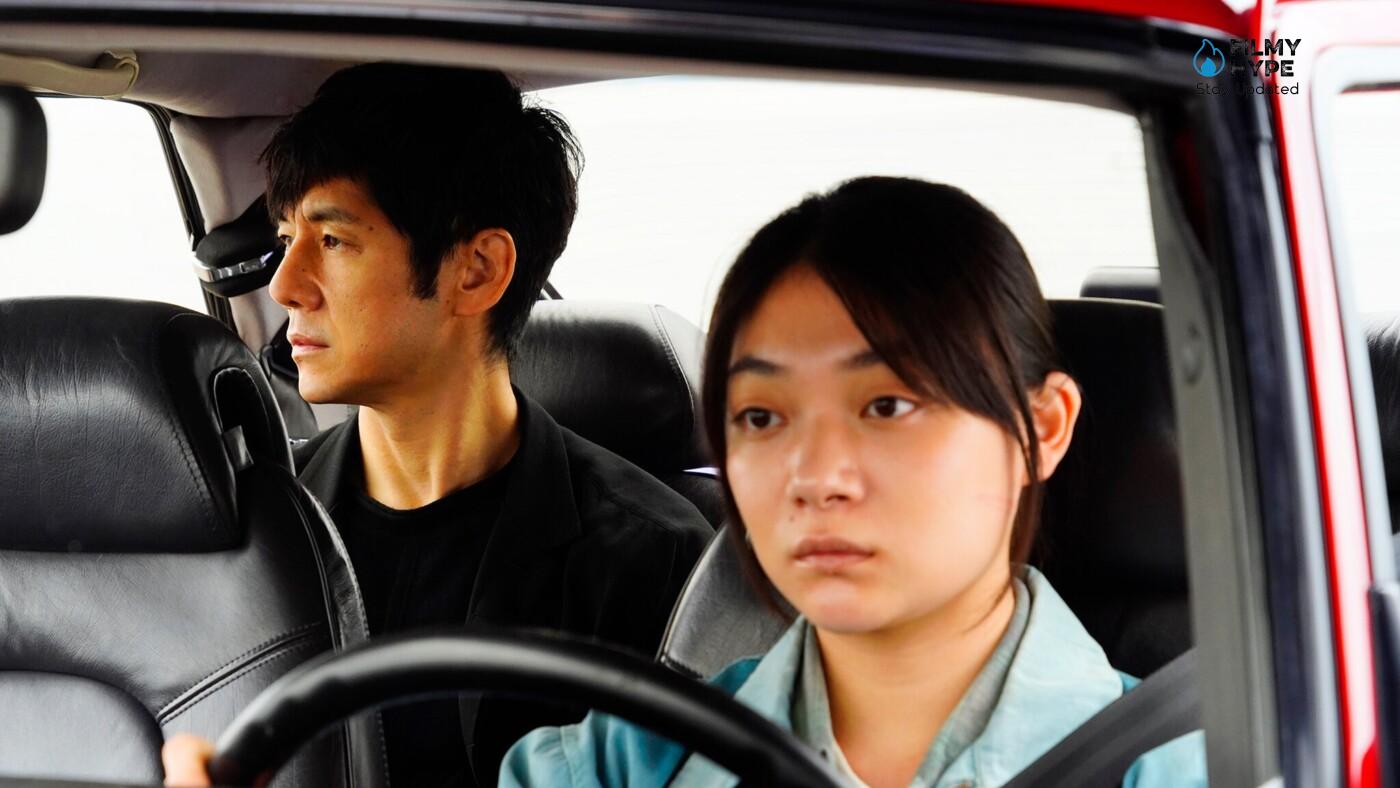Drive My Car Review: Very Deep Cross-Section Of Humanity Forced To Deal With Mourning And Guilt
Drive My Car Review Of The Japanese Film Based On A Story By Haruki Murakami Oscar Winning Film
Cast: Hidetoshi Nishijima, Tōko Miura, Masaki Okada, Reika Kirishima
Director: Ryusuke Hamaguchi
Streaming Platform: MUBI (click to watch)
Filmyhype.com Ratings: 4.4/5 (four and half star)
Drive My Car Review: The 2022 Oscar nominations have presented us with a real deja-vu: directly from 2020 an oriental film returns to claim the statuette for the Best International Film and also the most coveted one for the Best Film. It is no secret that Bong Joon-ho’s Parasite defeated the competition and took home both of them who knows if Drive My Car by Ryusuke Hamaguchi will succeed in the same enterprise. Hope is the last to die, but the Japanese film is very different from the Korean one not only in the plot, but in the essence.

A title that overlooks the abyss of its protagonists and remains dangerously poised over it for three hours, taking all the time necessary to investigate the story of Yusuke Kafuku , successful actor and theater director, transposed by weight from the homonymous story short by Haruki Murakami with the courage to expand it and make it an organism in its own right, in a delicate inner counterpoint that is a journey of discovery and acceptance of oneself, of others and of life in its inexorable flow.
Drive My Car Review: The Story
Yusuke Kafuku (Hidetoshi Nishijima) is a theater director and actor with a multifaceted working and emotional relationship with his wife. The woman forms a stainless artistic duo with him, but she manages to be elusive on a personal level, keeping part of her life in her shadow. Kafuku, however , loves her deeply and accepts her mysteries and complexity. After an embrace, the woman tells her husband an idea for a play on which she is working.
Subsequently Kafuku abruptly leaves the world of acting: he will instead take care of directing a particular adaptation of Anton Chekhov’s classic Russian theatrical Uncle Vanya for a theater in Hiroshima. The show sees characters speaking different languages, with Chinese, Japanese performers and a young deaf-mute actress who uses sign language. His request to the production is to be housed in a hotel far from the city, so that he can drive every day to and from the theater at least an hour: in fact, in the car Kafuku develops his ideas and works on the show, helped by the guide. . However, a hitch arises: following an accident, the theater company’s policy is to provide a driver to performers and directors.. So Kafuku will reluctantly give the wheel to the silent and very young driver Misaki Watari (Tōko Miura). As the show proceeds with unexpected revelations, the relationship from Yusuke and Misaki turns into something unexpectedly profound for both of them.
The same city of Hiroshima, emblem of a suffering so unimaginable and impossible to elaborate, is a metaphor of the film in its “having managed to go on” in spite of everything; in this regard Hamaguchi was good at not explicitly presenting any iconographic reference to the atomic bomb, showing us an almost anonymous Hiroshima in its modernity. Even the stories made by the deceased wife in a trance state in the most intimate moments follow this intertextual dialectic that could be applied to many other situations, which we will not elaborate on here to avoid further spoilers.
Drive My Car Review And analysis
It is interesting to note that the intertextuality that we have just enunciated is not understood by the spectators alone, but in the same way it is also experienced, perceived and interpreted by Misaki, who understands the sufferings of Yusuke since, in his own way, he is also a victim of own suffering. In this sense, the Saab 900 is the means by which existential doubts proliferate when Kafuku is driving, while it is the vehicle to elaborate them when Misaki is at the wheel. And it is precisely the relationship between her betrayed husband, eaten by remorse, and her daughter never raised by Yusuke and Oto, whose relationship with her mother has indelibly marked her, to represent the fulcrum of Drive My Car.
In this sense, Hamaguchi exponentially expands the trajectories of Murakami’s story, analyzing its ideas with clarity and arranging them to form a harmonious, calligraphic design , which becomes concrete when each element connects to the other, in a script that knows how to be delicate and ruthless at the same time, and who lives through an omniscient and clouding direction, depending on the point of view, a real safety parachute for an extraordinary cast in its variety , which mixes Japanese, English, Mandarin and the language of Korean signs with the same uniforming ease expressed in Chekhov’s multicultural representation by Kafuku.

A long journey of self-discovery, because in order to accept the idiosyncrasies of others one must first of all analyze one’s own and come to terms with the evidence that nothing will replace the fact that life goes on and we with it; for this reason it is useless to create existential levees and take refuge behind them waiting for the answers to make their way towards us. On the contrary, Yusuke must learn to favor the comparison, first of all with himself, and stop worrying about the missed one with his wife. The same goes for Misaki. And it is the last act of the film that gives us both the delicate awareness of both that will allow them to leave the past behind and embrace the future, passing the baton to us.
Hamaguchi is a director who makes his way into the soul of his characters by going up the stream of their words. Daily and extremely naturalistic dialogues gradually manage to clear away the superficial impressions between human beings, reaching the essence of their soul and, in this specific case, of suffering. Both Yusuke and Misaki are people closely touched by a deep and in some ways traumatic grief , which left a physical void in their lives but made the presence of missing persons even more tangible and influential in their lives. They are two silent damned on earth, forced to constantly think of two people who are crucial for them but in some ways indecipherable. Not easy people, whom they have misunderstood, by whom they have been hurt.
Drive My Car Review: The Last Words
Drive My Car it is a work that in its monumental and staid essence risks alienating the viewer even before granting him the taste for vision, while in reality it is an unforgettable journey into the soul of its protagonists, who plays with their own dramaturgical elements in a proliferation of subtexts and explicit as well as tasty intertextual references. Hamaguchi exponentially expands the story of Haruki Murakami through a sumptuous writing that is accompanied by a very conscious direction, at the helm of a heterogeneous and impeccable cast. The story of Yusuke is thus intertwined with that of Misaki to reach an existentialist epiphany that lets us reflect, while the red Saab 900 faithfully keeps the road, inviting us to take the wheel and be protagonists of our personal journey.






